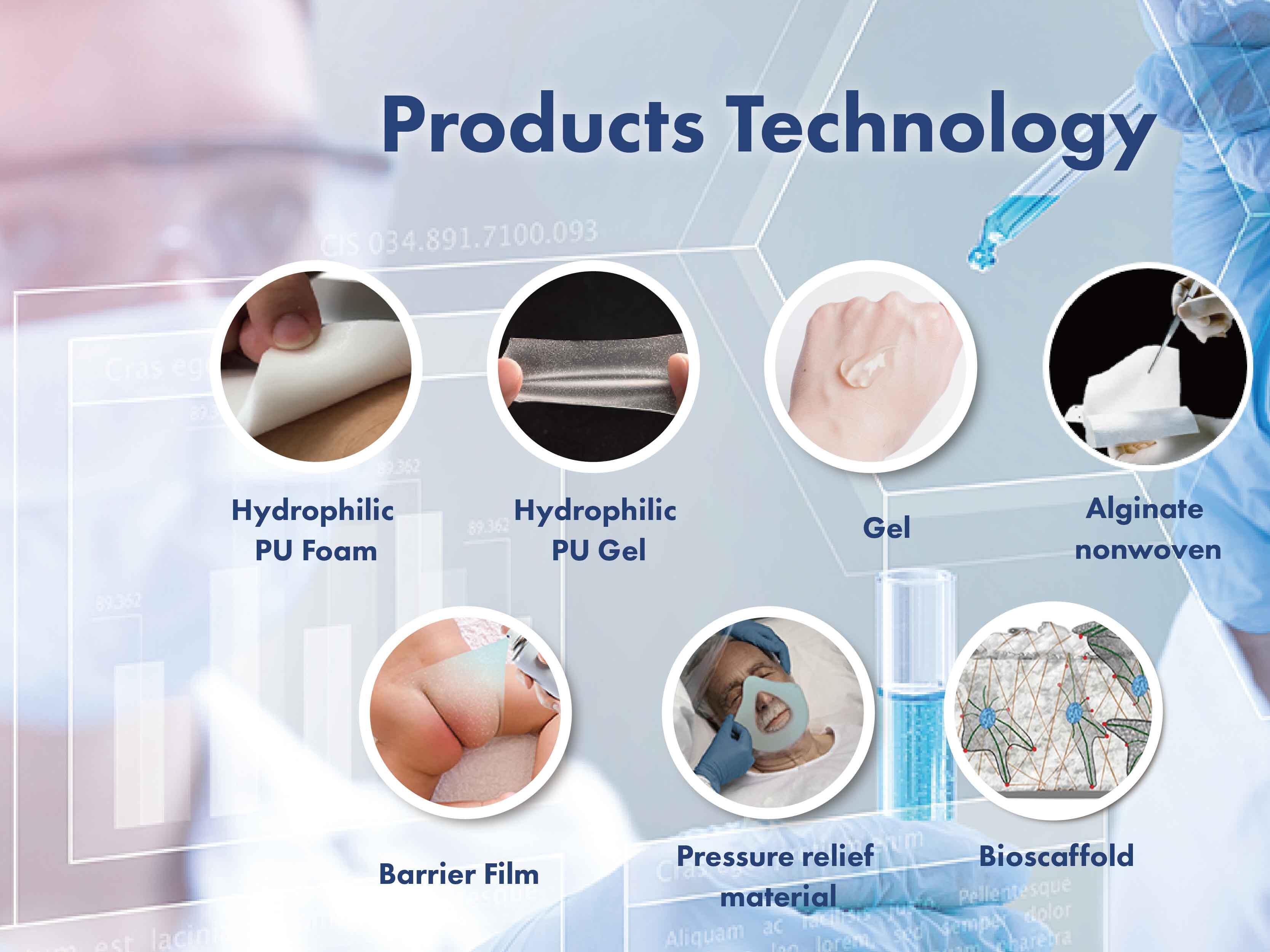Hydrophilic PU Gel
Utilizing polyurethane technology, the Hydrophilic PU Gel is not only an absorbent foam, but also a powerful polyurethane colloid agent. The formula combines characteristics materials that controls the softness and hardness of the molecules’ interactions. The gel has high air permeability and can be used for a long time. The material is soft and can be worn on the bare skin, hence it can be used to control the proliferation of skin scars. The Hydrophilic PU Gel provides patients and healthcare givers with the best control.
 |  |
| Skin conformability | Soft |
 |  |
| Breathability | High ductility |
PU gel technology
Stabilize wounds and prevent scars
 | Wound closure (Stabilize wounds) |
 | Downward pressure (Disperse pressure) |
(1)Provides a protecting and moisturizing environment
(2)Skin conformability
(3)Provides wound closure force and stabilizes the wound from being affected by body movement.
(4)Downward pressure of counteraction
(5)Raw materials are made of hypoallergenic materials
(6)Breathable structure
PU gel molecular structure
From raw materials>formula>process>products → control the soft and hard segment, adheres completely to the skin,
closes the wound, and disperses the concentrated pressure on the scar tissue.
PU gel material structure

PU gel material experiment
Scar experiment
It has been confirmed by animal experiments that the PU Gel material has the characteristics of inhibiting scar hyperplasia.
MVTR
| Test Item | Representative value | Testing Method |
| MVTR | 800 g/m-2.24h-1 | EN 13726-2 |
Why do we use postoperative dressings?
When injured, that tension causes the wound to splay open. This results in a typical scar. Greater tension induces increased scar form of a hypertrophic scar.
Adv Wound Care (2018) 7: 47–56.
The mechanical force distribution of keloid scar by finite element analysis showed high skin tension at the keloid edges.
Experimental Dermatology (2019) 28 : 464–471.
TAICEND’s Hydrophilic PU Gel allows the scar to heal quickly and reduces unwanted pigmentation, while keeping the scar process under control.

